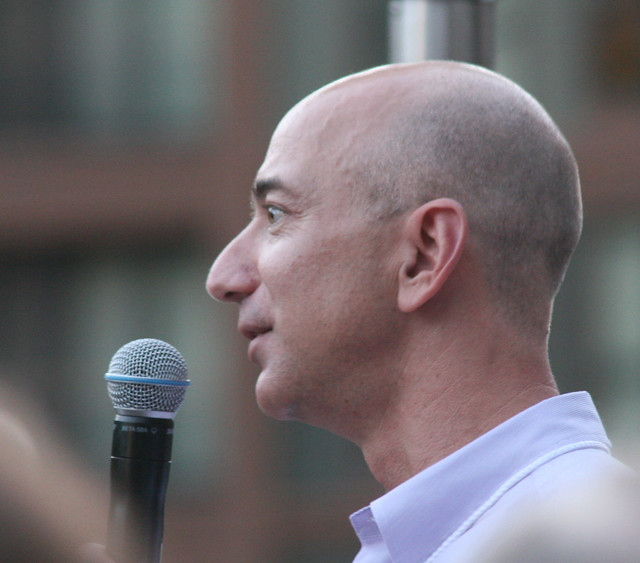Amazon made a blockbuster move when it announced it is increasing its minimum wage to $15 per hour for all full-time, part-time, temporary, and seasonal employees across the U.S. (The increase should benefit over 350,000 workers this year alone.) Best of all, “Amazonians” won’t have to wait long for the salary bump: It goes into effect on November 1.
But it was the press release detailing Amazon’s big reveal that really drew my attention–because it included an interesting and insightful statement by Amazon founder and CEO Jeff Bezos about why the company made the change:
“We listened to our critics, thought hard about what we wanted to do, and decided we want to lead.”
There’s a lot to be learned from that simple sentence. But I’d like to narrow in on just five words:
We listened to our critics.
Amazon has had no shortage of such critics, many of whom have chastised Bezos for what they consider unfair pay and treatment of entry-level workers. And while Bezos has long defended Amazon’s reputation as an employer, this recent announcement revealed evidence of a remarkable and invaluable quality:
The ability to learn from negative feedback.
We’ve seen this before
This isn’t the first time we’ve seen Bezos’s ability to learn from criticism.
Back in 2015, the New York Times published a viral story portraying behemoth Amazon as a brutal employer that put innovation and company performance above the well-being of its people. On the same weekend the article was published, Bezos sent out a memo to Amazon employees. In it, he encouraged them to give the New York Times article “a careful read.”
Bezos then directed employees to report any incidents similar to those in the story. He even invited employees to reach out to him directly through email. “Even if it’s rare or isolated, our tolerance for any such lack of empathy needs to be zero,” wrote Bezos in an internal memo. A year later, the company announced significant changes.
In both this instance and Amazon’s recent wage increase, it appears Bezos used negative feedback as a catalyst–to reevaluate the situation at his company and to consider if changes were needed.
How criticism can help you grow
In my new book, EQ Applied: The Real-World Guide to Emotional Intelligence, I compare the feedback you receive to a freshly mined diamond. Although such a rock is unattractive to the naked eye, its value becomes obvious after the detailed process of cutting and polishing.
Criticism is like that unpolished diamond: To the recipient, it’s ugly. You’re trying your best, and along comes someone to tell you what you’re doing wrong. In most cases, you’ll interpret that criticism as an attack–leading you to defend yourself or simply close your mind.
But here’s the thing: We’re not perfect. Our perspective is limited, and we all have blind spots. That’s why we need negative feedback if we’re going to grow.
Since most criticism is rooted in truth, it usually provides some insight you can use to improve. And even if the feedback is completely off base, it’s still valuable–because it helps you understand the perspective of others.
Much like a diamond cutter can take a raw, unpolished diamond and turn it into something beautiful, you can learn to extract the benefits of criticism and turn it into a learning experience.
So, what if you trained yourself to see criticism differently? Instead of viewing it as an attack, what if you saw it as a gift?
When you treat negative feedback as a learning opportunity, you can do the following:
- confirm the validity of your ideas and prepare yourself for similar criticism in the future;
- better craft your message in a way that reaches those with varying perspectives;
- better identify your target audience; and
- change and adapt when appropriate.
Of course, I’m not excusing thoughtless criticism. If you need to deliver negative feedback, it’s important to learn how to do so constructively.
But if you’re the recipient of criticism, you don’t have that luxury. Turn that feedback around by asking yourself:
- Putting my personal feelings aside, what can I learn from this person’s perspective? a
- How can I use this feedback to help me improve?
It takes emotional intelligence to ask and answer those questions. But doing so can turn you from a know-it-all, to a learn-it-all.
Remember, it never feels good to be told we’re wrong. But it’s those who disagree with us–the ones who call us out, who point out our weaknesses and flaws–who help us grow. Those who challenge us truly make us better.
Enjoy this post? Check out my book, EQ Applied, which uses fascinating research and compelling stories to illustrate what emotional intelligence looks like in everyday life.
A version of this article originally appeared on Inc.com.


